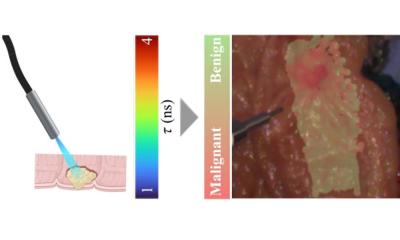
© Sergey Nivens – stock.adobe.com
News • Patient history analysis
AI helps GPs detect lung cancer 4 months earlier
Amsterdam UMC-developed algorithm, based on the data of more than half a million patients, may soon offer GPs the chance to accelerate a diagnosis
GPs may soon be able to identify patients with an increased risk of lung cancer up to 4 months earlier than is currently the case. The GP should be able to simply identify patients during a consultation with an algorithm created by researchers at Amsterdam UMC based on the data of more than half a million patients. The results of the study were published in the British Journal of General Practice.
Now many patients are diagnosed with lung cancer in an advanced stage, 3 or 4, which means that 80% of patients often die within a year. [...] Receiving a diagnosis four weeks earlier [...] is therefore probably a very relevant gain
Henk van Weert
The algorithm looks at all medical information from general practice including, the often for AI complicated, unstructured notes that a GP has made over the years. "The algorithm picks up predictive signals from patients’ medical history. With this, the algorithm then identifies a large proportion of these patients up to 4 months earlier than is currently the case," says Martijn Schut, Professor of Translational Artificial Intelligence at Amsterdam UMC.
Other studies and algorithms used predefined and coded variables, such as the variables 'smoking' or 'coughing up blood'. "The GP's notes contain information about the history of the patients with which we can detect patients with cancer much earlier thanks to the algorithm," says Ameen Abu Hanna, professor of Clinical Information Science at Amsterdam UMC. Further research must show which particular fragments the algorithm uses in order to actually be able to use it in practice.
This method may also offer relief for other types of cancer, which are often only found in an advanced stage, such as pancreatic, stomach or ovarian cancer. And for the patient, survival and quality of life are better and the costs are lower. "Now many patients are diagnosed with lung cancer in an advanced stage, 3 or 4, which means that 80% of patients often die within a year. Previous research indicates that receiving a diagnosis four weeks earlier already has a noticeable effect on the forecast. Four months is therefore probably a very relevant gain," adds Henk van Weert, emeritus professor of General Practice.
Recommended article

Article • Research, diagnostics, treatments
Focus on lung cancer
Lung cancer (pulmonary carcinoma) is one of the most common cancers worldwide and the leading cause of cancer-related deaths globally. The diagnostic and therapeutic options for lung cancer have expanded significantly in recent years. Keep reading for latest developments in screening, biomarker testing, treatment innovations, and ongoing research.
Compared to national screening programmes; the algorithm generates fewer false positives is lower and the selection can simply take place during the consultation. Lung cancer remains one of the most common cancers and, despite advances in treatment, still has a poor prognosis. The 5-year mortality rate is above 80%. Previous research indicated a significant increase in survival when treatment started 4 weeks earlier. With the authors' method, the majority (62%) of patients with lung cancer could be referred 4 months earlier. This makes a significant difference in costs. However, the method still needs to be validated in different countries and healthcare systems.
The files of 525,526 patients were analysed (from four academic GP networks in Amsterdam, Utrecht and Groningen), of which 2,386 were diagnosed with lung cancer. The diagnoses were validated using the Dutch Cancer Registry, and both structured and free text data were used to predict the diagnosis of lung cancer 5 months before diagnosis (4 months before referral).
Source: Amsterdam University Medical Center
23.04.2025










